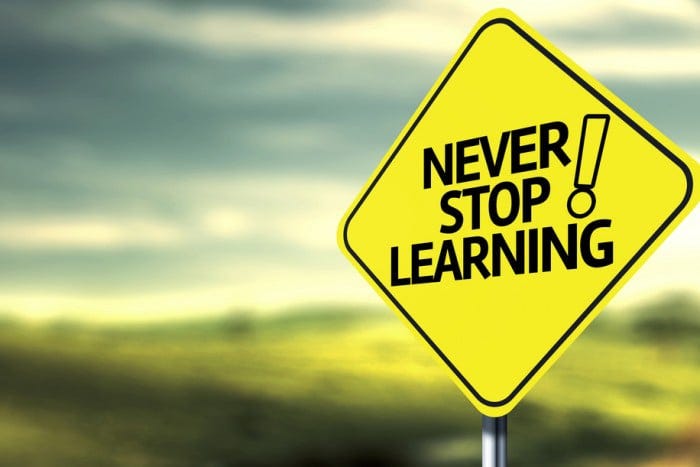Day 4 – Lifelong Learning is a Must
Welcome back!
Yesterday we talked about quieting your ego so you can learn and grow. Today, let’s explore why learning needs to become a daily habit, not just something you did in school.
The Old Way of Learning
In the past, learning had a clear pattern. You went to school as a child, maybe went to college, learned a skill or trade, and then worked your whole life using what you learned. People could do the same job for 30 years without needing to learn much new.
This system worked when the world changed slowly. A skill you learned in your twenties could last you until retirement. Companies stayed the same, technology moved slowly, and jobs didn’t change much from year to year.
Why the Old Way Doesn’t Work Anymore
Today’s world is completely different. The world is changing fast—faster than ever before. Technology, jobs, and skills are always evolving. What you learned five years ago might not be useful anymore. What you learn today might be outdated in two years.
Here are some examples of how fast things change:
New technology: Smart phones, social media, and AI have changed how we work in just the last 15 years
New jobs: Jobs that didn’t exist 10 years ago (like social media manager or data scientist) are now common
New skills: Even if your job title stays the same, the skills you need to do it well keep changing
New ways of working: Remote work, video meetings, and digital tools have changed how teams work together
The New Reality
In today’s world, the people who succeed are the ones who never stop learning. They understand that learning isn’t something you finish—it’s something you do every day for your whole career.
Companies want to hire people who can adapt and grow. They need workers who can learn new software, understand new processes, and take on new challenges. If you stop learning, you become less valuable at work.
What Lifelong Learning Looks Like
Lifelong learning doesn’t mean going back to school full-time. It means making learning part of your daily routine. Here are some ways to do it:
Read regularly: Read books, articles, or blogs about your field or things that interest you. Even 15 minutes a day adds up.
Watch and listen: Use videos, podcasts, or online courses to learn during your commute or lunch break.
Ask questions: When you see someone doing something well, ask them how they do it.
Try new things: Volunteer for projects that will teach you new skills.
Learn from mistakes: When something goes wrong, figure out what you can learn from it.
Stay curious: Always be asking “How does this work?” or “What would happen if we tried this?”
The Benefits of Lifelong Learning
When you make learning a habit, great things happen:
You become more valuable: People who keep learning new skills are the ones who get promoted and get better jobs.
You feel more confident: When you know you can learn new things, you’re not afraid of change or new challenges.
You stay interesting: People who keep learning always have something new to share and talk about.
You adapt better: When things change at work, you’re ready because you’re used to learning new things.
You enjoy work more: Learning new things keeps your job interesting and prevents boredom.
Making Learning a Habit
The key to lifelong learning is making it a regular habit, not waiting until you have to learn something. Here are some tips:
Start small: Even 15 minutes a day makes a big difference over time.
Be consistent: It’s better to learn a little bit every day than to try to learn a lot once in a while.
Choose what interests you: You’ll stick with learning if you enjoy what you’re learning about.
Use different methods: Mix reading, watching videos, listening to podcasts, and hands-on practice.
Set learning goals: Decide what you want to learn each month or quarter.
Learning in the Age of Smart Machines
Remember, smart machines are getting better at many tasks. But they can’t replace your ability to learn, adapt, and grow. The more you learn, the more valuable you become compared to machines.
Machines can process information quickly, but they can’t be curious about new ideas or creative about solving problems. Your ability to keep learning and growing is what keeps you ahead.
Key Idea
Stay curious. Make learning part of your daily life. In today’s fast-changing world, the people who keep learning are the ones who succeed.
Reflection
What’s something you’ve always wanted to learn but never tried?
Maybe it’s a new skill related to your job. Maybe it’s a hobby you’ve been curious about. Maybe it’s a subject you found interesting in school but never had time to explore.
Don’t worry about being perfect at it. The goal is to start learning and stay curious.
Today’s Application
Here’s your challenge for today: Set aside 15 minutes to read, watch a video, or try something new. It can be about your job, a hobby, or a completely new idea.
This might seem like a small step, but it’s how lifelong learners start. One small learning session leads to another, and before you know it, learning becomes a natural part of your day.
You’re becoming more valuable every time you learn.
Keep learning!
Coming Up Next
Tomorrow, we’ll explore how collaboration is the new competition.




